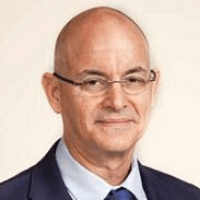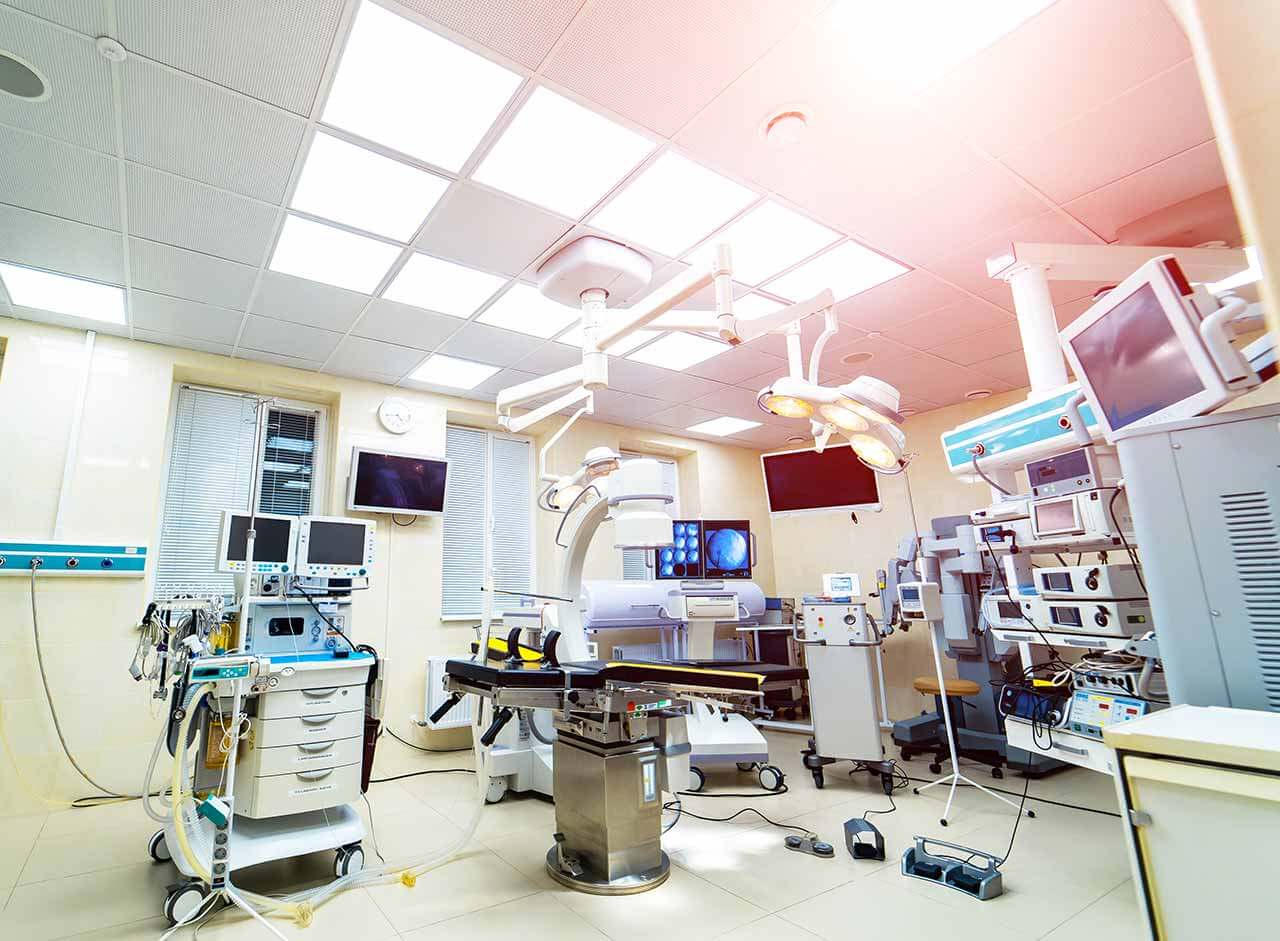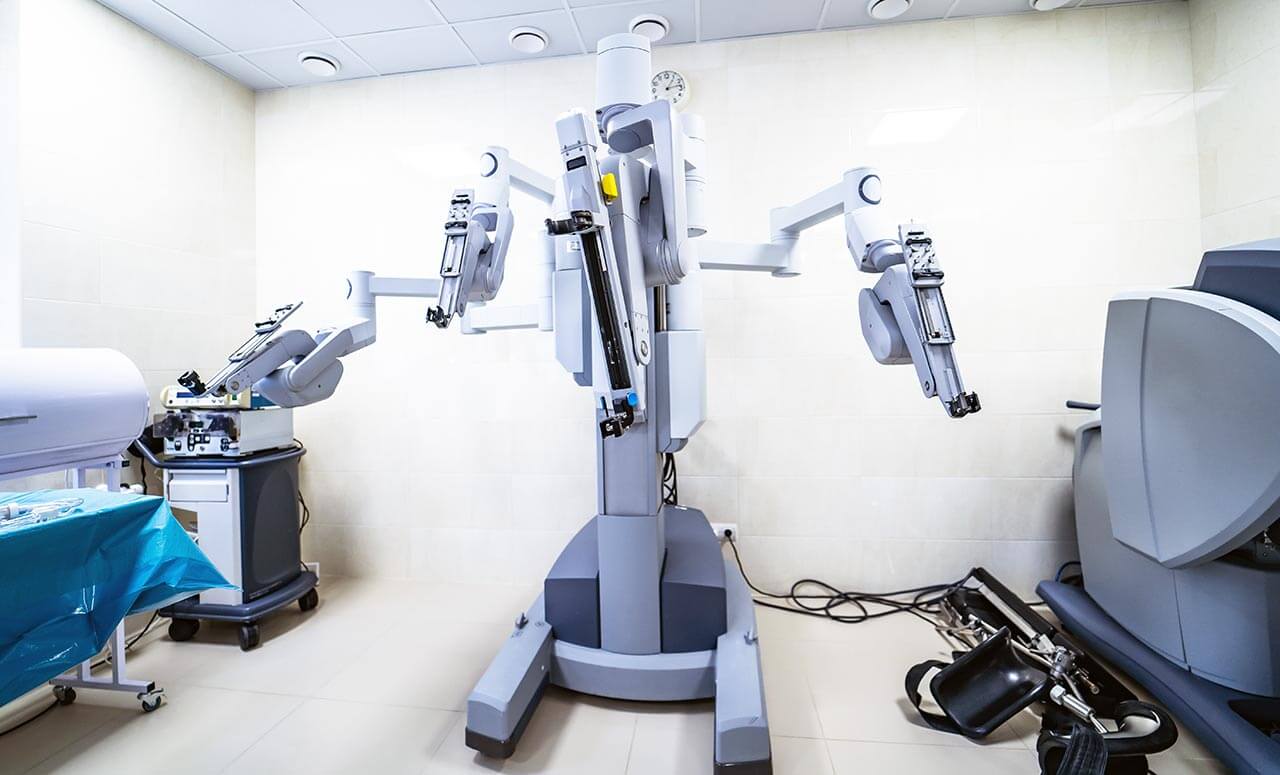
About the Department of Gastroenterology at Rambam Health Care Campus Haifa
The Department of Gastroenterology at the Rambam Health Care Campus Haifa offers the full range of high-quality services for the diagnostics and treatment of patients with pathologies of the gastrointestinal tract, liver, biliary tract and pancreas. Itperforms a wide range of invasive and non-invasive treatment and diagnostic procedures, as well as various types of endoscopic examinations. All diagnostic and therapeutic measures are carried out using state-of-the-art technical equipment, which makes them as effective as possible. The department is one of the best medical facilities in the area of its specialization not only in Israel, but also in the international arena. The department is headed by Prof. Dr. med. Yehuda Chowers.
It is worth noting that the department is actively involved in international clinical trials of new and experimental drugs. The doctors of the medical facility participated in the development of the PillCam™ video capsule for the examination of the small intestine, as well as of the esophagus and colon. This capsule was first used in clinical practice in Israel. According to rough estimates, about 700,000 patients have already undergone this diagnostic procedure.
The main diagnostic options of the department include:
- Endoscopic retrograde cholangiopancreatography (for the diagnostics and treatment of diseases of the pancreas and bile duct)
- Endoscopic examination of the upper gastrointestinal tract (gastroscopy)
- Endoscopic examination of the lower gastrointestinal tract (sigmoidoscopy, colonoscopy)
- Percutaneous endoscopic gastrostomy
- Video capsule endoscopy
- Liver biopsy
- Conventional liver biopsy (puncture, percutaneous)
- Laparoscopic liver biopsy
- Transjugular liver biopsy
- Other diagnostic methods
The department's range of medical services includes:
- Diagnostics and treatment of Crohn's disease
- Diagnostics
- Colonoscopy, virtual colonoscopy
- Gastroscopy
- Fecal occult blood test
- Barium enema or irrigoscopy
- Biopsy
- Blood test for C-reactive protein and antibodies
- CT scan (computed tomography)
- MRI (magnetic resonance imaging)
- Therapy
- Anti-inflammatory drug therapy
- Immunosuppressive therapy
- Antibiotic therapy
- Surgical treatment
- Diagnostics
- Diagnostics and treatment of hemorrhoids
- Conservative treatment
- Surgical treatment
- Ligation of hemorrhoidal vessels by means of latex rings
- Transanal hemorrhoidal dearterialization
- Hemorrhoidectomy (surgical removal of enlarged hemorrhoids)
- Diagnostics and treatment of anal fissures
- Conservative treatment
- Ointments
- Injection therapy
- Surgical resection
- Sphincterotomy
- Fissurectomy
- Conservative treatment
- Diagnostics and treatment of hepatitis C
- Diagnostics
- Blood test
- Tests to assess the number of viruses in the blood and identification of the genotype of the virus carried by the patient
- Tests to assess liver function (liver tests)
- Liver ultrasound
- Liver biopsy
- Therapy
- Treatment with pills
- Percutaneous injection therapy
- Combination of the two above-mentioned methods
- Liver transplantation
- Diagnostics
- Diagnostics and treatment of cirrhosis
- Diagnostics
- Biochemical profile, including viral hepatitis markers
- Liver ultrasound scanning or computed tomography (CT)
- Liver biopsy
- Therapy
- Immunomodulatory therapy for viral hepatitis
- Therapy using steroid drugs or other immunosuppressants for the treatment of autoimmune diseases, which cause liver damage
- Diuretic therapy for ascites
- Hepatoprotective therapy
- Plasmapheresis procedures
- Anti-itch medications
- Zinc medications (in its deficiency)
- Vaccination against hepatitis A, influenza and pneumococcal infection
- Prevention and treatment of osteoporosis
- Drugs for the control of portal hypertension
- Paracentesis for ascites (puncture of the abdominal wall for the removal of liquid from the abdominal cavity)
- Emergency treatment of haemorrhages
- Liver transplantation
- Diagnostics
- Diagnostics and treatment of reflux esophagitis
- Diagnostics
- Advanced blood count
- Esophagogastroduodenoscopy
- X-ray of the esophagus using contrast medium (barium)
- Acidity testing in the stomach and esophagus
- Manometry (esophageal pressure measurement)
- Therapy
- Comprehensive treatment aimed at the elimination of symptoms, prevention of complications and elimination of the main causes of the disease (diet, antacids)
- Surgical treatment (endoscopic minimally invasive techniques)
- Diagnostics
- Diagnostics and treatment of gastroesophageal reflux disease (surgical treatment)
- Diagnostics and treatment of cholelithiasis
- Diagnostics and treatment of peptic ulcer
- Diagnostics and treatment of gastritis
- Diagnostics and treatment of intestinal diverticulosis
- Diagnostics and treatment of gastrointestinal cancers
- Esophageal cancer
- Bowel cancer
- Colon cancer
- Rectal cancer
- Stomach cancer
- Pancreatic cancer
- Liver cancer
- Gallbladder cancer
- Diagnostics and treatment of other diseases, other diagnostic and treatment methods
Curriculum vitae
Prof. Yehuda Chowers is the Chief Physician of the Department of Gastroenterology at the Rambam Health Care Campus Haifa and the Professor in the Technion Faculty of Medicine.
Prof. Chowers got his doctorate in Medicine from Ben-Gurion University. He conducted his postdoctoral fellowship in the Laboratory of Mucosal Immunology at the University of California in San Diego.
Prof. Chowers has many honors and awards, for example, the Advanced AGA Research Training Award of the American Gastroenterology Association. He is a two-time winner of Chaim Sheba Medical Center’s Award for Excellence in Research.
Prof. Chowers is a Member of the European Crohn’s and Colitis Organization (ECCO), the American Gastroenterology Association, the Israel Gastroenterology Association, and the Israel Medical Association. He was a Member of the ECCO Scientific Committee and the Assigned Representative of ECCO to the European Gastroenterology Association Scientific Committee. He serves in the Editorial Board of Alimentary Pharmacology & Therapeutics. He was an Associated Editor for the Journal of Crohn’s and Colitis, and a Member of the Editorial Board for Gut.
Prof. Chowers’ research interests are focused on personalized therapy of inflammatory bowel diseases based on understanding drugs mechanisms of action, immunogenicity and therapeutic drug monitoring of biologics, and the interplay between bacteria and the mucosal immune system. Additional research is performed to understand the mechanisms of radiation induced bowel injury and means to prevent it.
He has co-authored over 160 papers in professional journals, including basic research, clinical research articles, guidelines, case reports and review papers. Prof. Chowers has been a Lead Presenter and a Guest Speaker at conferences worldwide. He served on the organizing committees for a number of professional international conferences.
Photo of the doctor: (c) Rambam Health Care Campus Haifa





